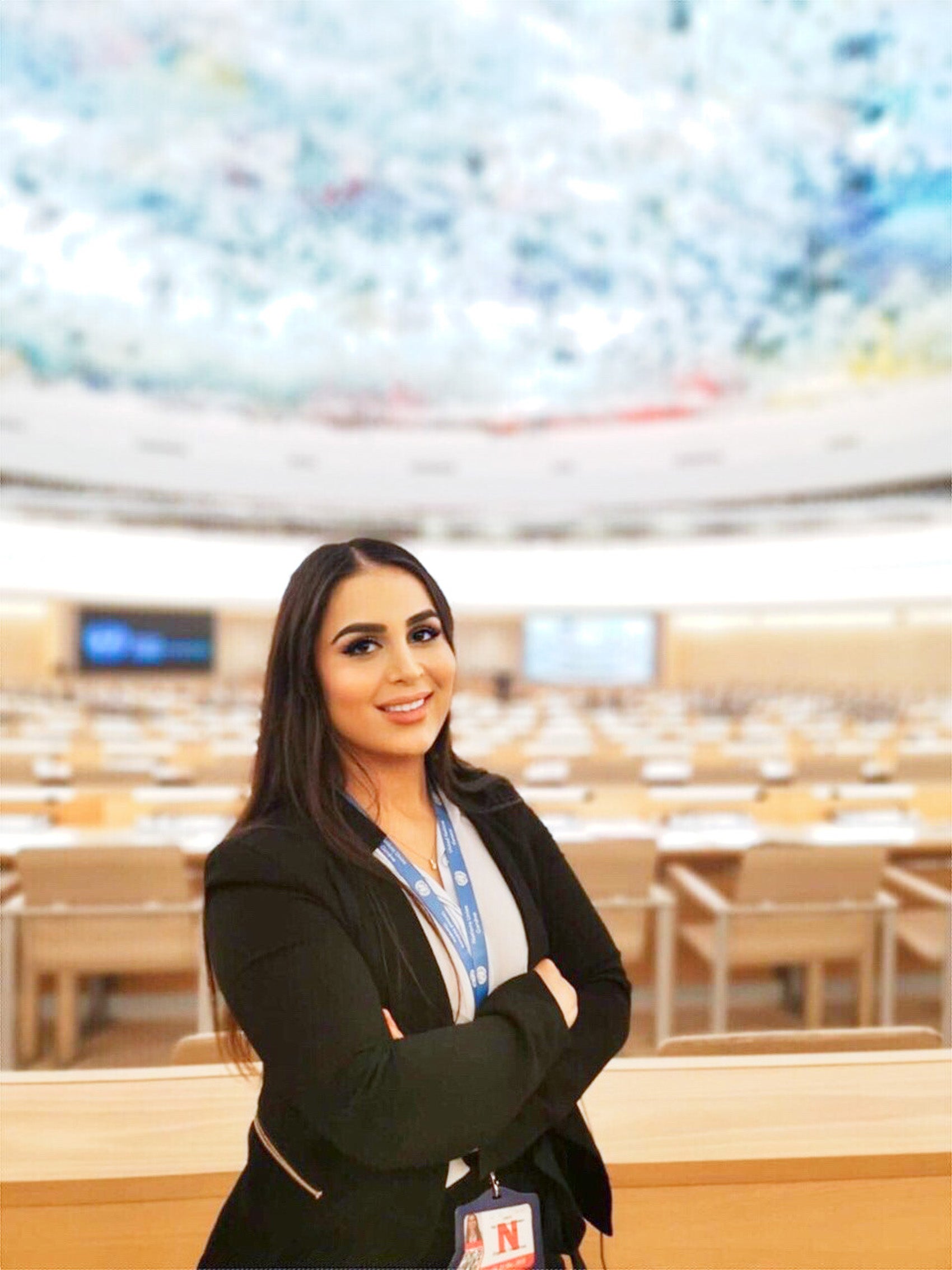Rez Gardi LL.M. ’19 was 13 years old when she visited the Iraqi region of Kurdistan for the first time. For her parents, it was a return to the homeland they’d left years earlier as political activists, fleeing the brutal regime of Saddam Hussein — first to Iran, and then, when the political situation became too unstable, to Pakistan, where Gardi was born in a United Nations refugee camp in 1991.
During their visit to Kurdistan in 2005, Gardi met her grandparents and extended family. She saw Kurdish flags everywhere and heard Kurdish spoken in the shops. “I was mesmerized by that,” she remembers. But when the family traveled to the Iranian and Turkish regions of Kurdistan, it was a completely different experience. Her parents told her not to speak Kurdish out loud. And at the Iraqi-Turkish border, Turkish guards confiscated the Kurdish maps, clothing, and flags Gardi had in her bags.
“I burst into tears — I was crying and screaming and asking why these things were being taken,” she says. “I remember my mom freaking out and dragging me away.” Gardi was struck by how different and unfair the situation could be for people living just 20 kilometers apart.
“I think that experience really triggered something for me,” says Gardi. “That’s when I started asking questions and digging into our family history and found that my parents had been fighting for human rights their entire lives. That made me want to figure out how I could contribute.”
Gardi and her family had been resettled to New Zealand when she was 6 years old. “I didn’t realize how difficult our lives had been in the camp until we moved,” she says. “Water and food were scarce, we didn’t have proper showers, and we had to share a gas stove with 13 other people in the tent next to us.” She walked with others to protest the conditions and lack of education but didn’t know what the signs they were holding meant. “I just thought, Oh, this is nice, I’m getting to see my friends,” she recalls. Gardi’s father and other activists were detained by Pakistani police for demanding better conditions, including access to schools — a demand eventually met, although only after Gardi’s older siblings had missed out on years of education.
The day the family received word they would be resettled was celebrated, appropriately, at a Western-style burger joint in Rawalpindi. “I remember the day vividly because it was the first time we were eating these things, and it was such a happy moment,” she says. “The U.N. in Pakistan had told us that New Zealand was a city in Australia, so that’s where we thought we were going.”
Trees — something she hadn’t seen near the barren camp in Pakistan — were one of the first big differences Gardi remembers noticing about New Zealand. The other was the schools. Teachers didn’t hit the students for having the wrong answer or mispronouncing a word, as she had so painfully experienced in Pakistan. At first, Gardi was still afraid; if the students weren’t being punished, they must be getting all the answers right, and with English as her fourth language (and fourth alphabet), she surely wouldn’t. Once she realized she was in a safe environment, Gardi thrived. Eventually she would graduate from the University of Auckland with degrees in law, international relations, and political studies. (Her older brother and sister had more difficulty adapting, an issue shared by many refugees; in response, in 2017 Gardi founded the Empower Youth Trust, an initiative to support refugee youth and increase their representation in higher education.)
Since January 2020 Gardi has been living in Duhok, in Iraq’s autonomous Kurdistan Region, brought there by a Harvard Law School Satter Human Rights Fellowship, following through on that long-ago desire to improve the lives of others. “I think my parents always thought it strange that I found my way back to the place they fled,” she says. “But it’s not surprising to me, given their own passion for justice and equality.”
Working with a nonprofit, she was part of an international team of lawyers gathering evidence for the prosecution of ISIS militants who took part in a 2014 genocide against the Yezidi, a long-persecuted religious minority who live primarily in Iraq. Much of that work involved interviewing survivors of unthinkable brutality, a task Gardi approached with empathy. The Yezidi avoid directly discussing topics of a sexual nature. “Some of the women will use slang terms for rape, because they can’t come to say, This is what he did to me,” she says. “I felt badly about asking those questions, but I had to get over that because it was important for building a case.”
Despite her family background and the hardship of her early years, Gardi recognizes that she is a Westerner. A reading group on community lawyering she took part in at HLS led her to examine more deeply her role as a human rights lawyer operating from a place of privilege, given her access to education and opportunity. She says it brought up “a little bit of an identity crisis,” because her plan has always been to get the skills and qualifications she needed to contribute to her homeland. “That reading group raised a lot of questions for me, which is always a good thing.”
“I can’t say they’ve all been answered,” she continues. “I’m still trying to understand my role in this complex place.”
This past spring, she was a lecturer at the University of Kurdistan Hewlêr, teaching comparative Constitutional law with a focus on Iraq’s Constitution and human rights law.
While she isn’t certain exactly what the next step will be, Gardi is adamant that she will continue to work on international law and human rights issues and remain in the Kurdish region of Iraq, a part of the world that defined who she is — well before she knew where that connection would take her.
